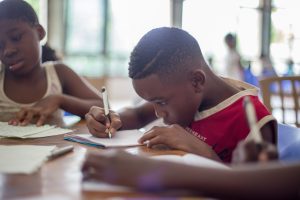How social-emotional learning prepares students for life
Social-emotional learning (SEL) has been gaining traction in education as a way to support students’ holistic development. It goes beyond academic skills and focuses on developing emotional intelligence, self-awareness, and interpersonal skills. This type of learning is crucial in shaping students’ character and preparing them for life beyond the classroom. In this article, we will explore how social-emotional learning prepares students for life, and why it’s essential for their overall well-being and success.
The importance of social-emotional learning
Social-emotional learning provides students with the necessary skills to navigate the complex and ever-changing world that we live in. With the rise of technology and social media, students are bombarded with information and faced with constant pressure to perform and fit in. This can lead to high levels of stress, anxiety, and even depression. SEL equips students with the tools to manage their emotions, build positive relationships, and make responsible decisions in the face of these challenges.
Building emotional intelligence
Emotional intelligence is the ability to recognize, understand, and manage your emotions and the emotions of others. It is a crucial skill for students to develop as it allows them to identify their own strengths and weaknesses, as well as understand the perspectives and emotions of those around them. Through SEL, students learn to regulate their emotions and cope with difficult situations in a healthy way. This helps to build resilience and prepares them for the ups and downs of life.
Developing self-awareness
Self-awareness is the ability to recognize and understand your own thoughts, feelings, and behaviors. SEL provides students with the space and guidance to reflect on who they are and how they interact with the world. By gaining a deeper understanding of their values, beliefs, and motivations, students can make more intentional choices and build a strong sense of self. This is essential for students as they transition into adulthood and face important decisions.
Fostering positive relationships
One of the key components of SEL is building positive relationships with others. This includes learning how to communicate effectively, resolve conflicts, and show empathy towards others. These skills are crucial for students as they move through life and interact with peers, family, and colleagues. Strong interpersonal skills also contribute to a positive school and work environment, promoting collaboration and productivity.
Preparing students for the future
Social-emotional learning not only benefits students in the present, but also prepares them for the future. The skills and competencies developed through SEL are highly sought-after by employers and essential for success in the workforce. In fact, a 2017 survey by LinkedIn found that 57% of leaders said soft skills, such as communication and emotional intelligence, are more important than hard skills.
Furthermore, in a constantly evolving job market, students need to be adaptable and resilient. Social-emotional learning equips them with the skills to navigate change and handle setbacks, making them more resilient and able to bounce back from challenges.
Integrating SEL in the education system
Social-emotional learning is not a stand-alone subject, but rather it can be incorporated into the existing curriculum. This means that students can learn SEL skills in a variety of subjects and activities, such as through team-building exercises, literature, and even math problems.
SEL can also be integrated into the classroom culture through practices such as daily check-ins, where students express their emotions and set intentions for the day. Teachers can also model SEL skills and create a supportive and inclusive classroom environment where students feel safe to learn and grow.
In conclusion
Social-emotional learning is a vital part of education, equipping students with the skills and competencies needed to thrive in all aspects of life. By building emotional intelligence, self-awareness, and positive relationships, students are better prepared for the challenges and opportunities that await them. As educators, it is essential to prioritize SEL and provide students with the necessary tools to become confident, resilient, and successful individuals.










